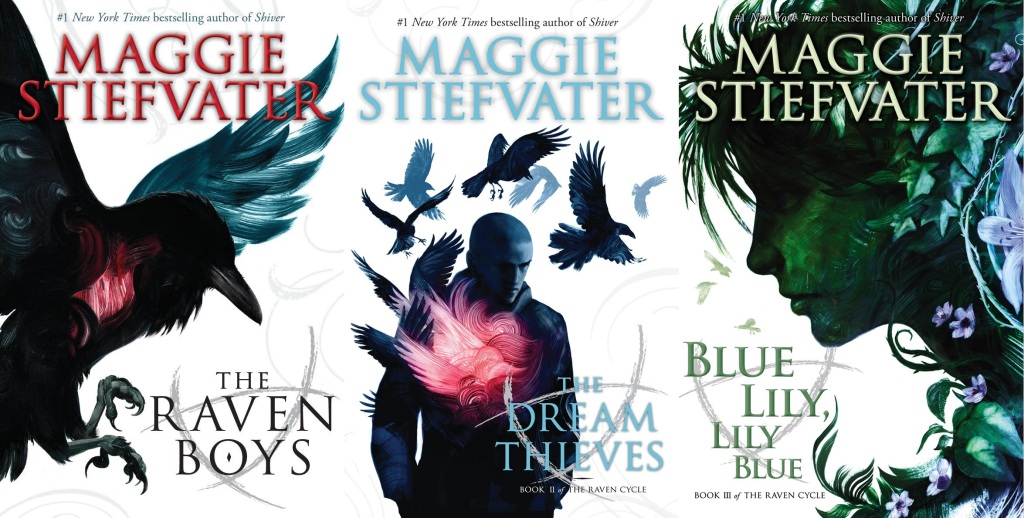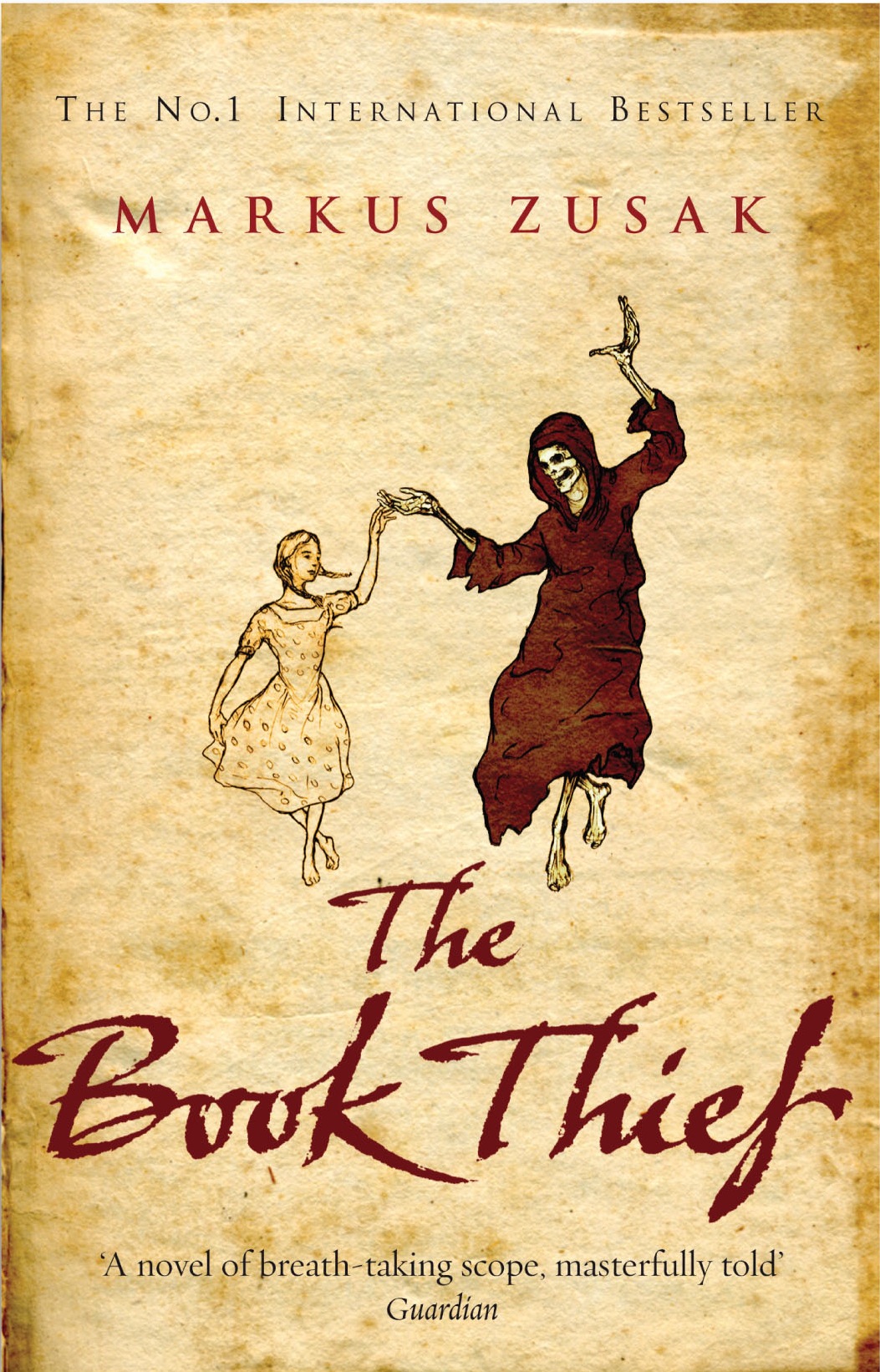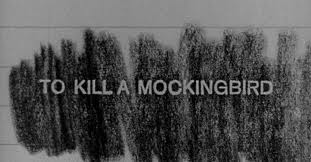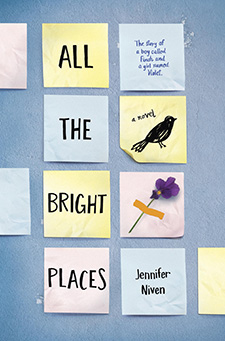
I recently read a book called All The Bright Places by Jennifer Niven. It is the story of a girl who learns to live her days instead of counting them down from a boy who wants to die.
The story is nice. The kind of nice you feel when you look around a coffee shop and see the inspiration for why a writer may have chosen to write about that coffee shop looking just like this or sounding just like that. The kind of nice you feel when you see you are working towards something you aspire to be. Especially the kind of nice you feel when you read a book that makes you feel fuzzy and philosophical and generally in love with the scenery and the people and the atmosphere surrounding you – you feel as if this writing has helped you see what the writer may have. The grass looks greener, to put it simply. And you love it. Or, maybe, rather, the wording is nice. But with every book that the wording makes you feel lovely and warm and content, there is a twist, and a sad ending.
The plot sounds relatively simple. “A girl who learns to live from a boy who yearns to die.” Oh, you think, they’ll probably fall in love, too. They do. And it’s very bittersweet. The two of them are assigned a project, it sounds cliché, and it absolutely is, but it becomes a very lovable scenario. Our two main characters, Violet and Finch, are both huge lovers of words, stories, books, writing, brainstorming and general writing and words. The chapter titles are something I penned down as creative. They aren’t called actual chapter names, which is fine, but what I liked about it was it’s simplicity. Each chapter was either labelled “Violet” or “Finch” with a short sentence underneath it, such as: “135 days until graduation.” or “Day 6.” or “How to survive quicksand.”
The book itself is immaculately representative,which is fantastic. We find out Finch could potentially be – watch out, spoilers – bipolar. I’ve yet to read another book where one main character has bipolar disorder. Things like mental illnesses aren’t exactly mentioned in many books, or at least not that I’ve read. And quite frankly, that sucks. I believe representation, of many things, is important. Gay characters, bisexual characters, pansexual, asexual, transgender, transsexual, those with mental illnesses, those with disabilities, genderqueer people, nonbinary people, intersex people, aromantic people, and demisexual people should all be represented in as many ways as they can. Books, movies, TV shows, comics, anything – anything. I like to think that with every book that has representation is a step closer to something bigger, and this being the first book I’ve read with a character with a mental illness, I think that is one huge step.
Even in the back of the book, where the author’s notes sit, there are a list of numbers and helplines for places all over the world so the author really gets the point across. You are not alone. (I have read one other book with something like this similar in the author’s notes. A book called Beautiful Music for Ugly Children, where the main character is trans – female to male – and in the author’s notes there is a section on what the author calls the “transgender umbrella”. She talks of all different types of gender identities, and with every book like these I read, I realise we are a little more away from blue and pink, and a little closer to a full colour spectrum.)
The book itself, while yes, it was sad, and yes it was bittersweet and heartbreaking and emotional, it was also light and humourous. Our main character, Finch, is what most people on sight would label a ‘weirdo’, and since this particular novel happens to be set in a high school, well, you can see why it feels a lot harsher. However, Finch is comedic and light hearted and sarcastic. It seems to lift the novel’s atmosphere up as you read. The plot is full of exploration of sites in Violet and Finch’s state. The way the author describes the scenery and the way Violet and Finch interpret them makes you want to slap on your shoes at 3am and go for a walk so you can see the world the way these two might have, even if it’s only a sliver of their world you glimpse. It makes you want to sit up on your windowsill with your feet dangling over the edge so you can see the view from a fresh perspective which is a lot higher up than your usual one.
My favourite character would have to be Finch. He is witty and sarcastic yet sad and questioning and insightful. He is a bundle of adjectives that I took a shine to, and he is a bundle of adjectives that I relate to.
For notes here, I wrote: “Recommend it – why would you?” and honestly, why wouldn’t I? The book is sad and funny, bittersweet and heartwarming, and definitely one to make you cry. The characters are well-rounded and lovable, complicated and realistic, and possibly the best ones I have ever read about. If you, like me, are one for tears and laughter and that comfortable philosophical feeling tingling from your toes all the way up, I absolutely recommend this book to you.
Category Archives: Literature
Review Dash and Lily’s Book of Dares by Sian Thomas
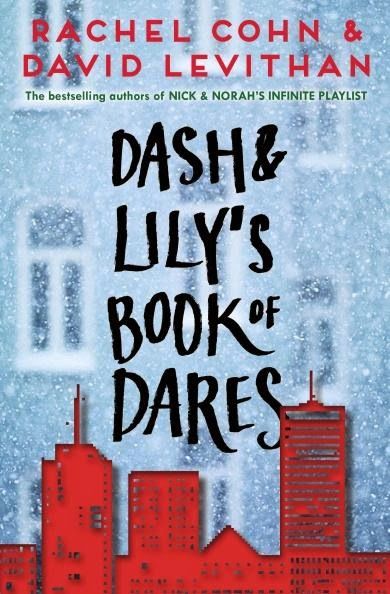
I have just finished a book called Dash and Lily’s Book of Dares. It’s written by Rachel Cohn and David Levithan. It’s just one single book instead of a series, this time.
It’s about two teenagers who live in New York and it’s set during Christmas time. One of them, Lily, usually has a very family filled Christmas, however, this Christmas, her parents left for Fiji for their 25th Anniversary, so her brother suggests a project for Lily. He gets a red moleskin notebook and writes instructions for any passer-by who may want to take on a few dares. Dash picks up this notebook and follows along, eventually creating a back-and-fore conversation between himself and Lily by using the notebook, while he throws in other suggestions, instructions and dares just as Lily does, too.
As this continues, we see them both start to idealise the other in an almost fairytale way. While neither of them knows what the other looks like or acts like or is like, it’s a pretty predictable thing to see. It wasn’t bad, if anything I expected it. Countless reading of clichés get you like that, I have found out. I don’t particularly believe it to be a bad factor, if you enjoy clichés.
The book was written in a funny and sarcastic way, as if the two teenagers, Dash and Lily, were there in front of you, taking turns telling their story. While it may not be everyone’s cup of tea, it was definitely mine. The witty way it was written was most likely designed for teenagers and young adults, and definitely works for getting them to have a giggle at the book, story and characters.
One character that stood out to me was Lily’s older brother, Langston. While most of Lily’s immediate family was away, Langston was not, and he invited his boyfriend, Benny, over to stay a few nights before both of them accidentally became ill and stayed at separate houses. The way that Langston talks is very older-brotherly yet sarcastic, which added a few extra laughs into the book – even though the way the book was written was already done hilariously. I personally believe that the factor that Langston is openly gay is a great thing. I do believe we need more representation of gay people ( to go further, bisexual, asexual, pansexual, transgender or transsexual people, also) in, well, anything, really. Novels, tv shows, movies, anything. I feel the creation of Langston was a step closer to something greater writers and readers alike will hope to see more of.
The book was highly enjoyable. Funny, loveable and enticing as any other. If anything, I’d recommend it to anyone with a sense of humour similar to that of a teenager like myself or young adult who can have a laugh, or someone who needed a bit of a giggle as they curled up to read with a cup of tea.
Review The Blood of Eden by Julia Kagawa
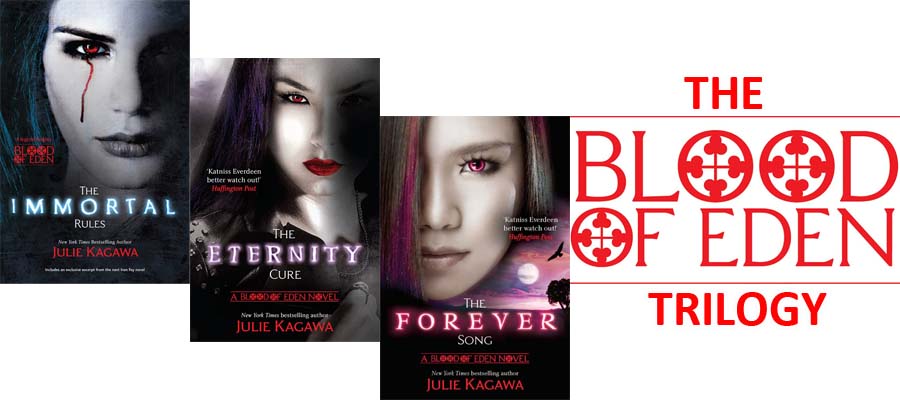
I recently read a trilogy called The Blood of Eden. It’s written by Julia Kagawa, and each of the series of books are equally enticing.
The series is about a girl named Allison Sekemoto and her trials and experiences both before becoming a vampire and then after, with other things weaving their way in and becoming equally important.
While the first book, The Immortals Rules, starts off very slow, you can easily begin to wonder if in fact: Will this book end up like every other vampire story quite possibly ever created? The answer is no, it just takes a while to get there. However following this, you realise that everything you’ve read on the blurb has already happened within the first part of the story, which is only a number of chapters. Your first thought probably races to: There better be something else coming up and fast. And let me tell you, there is!
After my own personal rocky start with the book, once the jagged phase has been passed, the book becomes easily enjoyable and a page-turner that’s so lethal that if anyone tried to grab the book off you, they’d probably get a paper cut. The plot spirals into situations that seem to get even worse as you go, before eventually getting resolved, but usually with another outcome that pushes into the next plot arc, so there’s always something else at the end of one situation.
The second book, The Eternity Cure, starts off neither slow nor fast. The first book leads off with something immediately followed up in the second, however it can be considered slow the way it starts out. Our main character, Allison (Or Allie) is travelling alone in search of someone, with little interactions until the plot finally opens up, and once it does the story immediately starts rolling. One thing I noted about the second book particularly (and later on, the third book) was that at certain times of the story, the next moves of some characters who are meant to be unpredictable, are rather predictable. Maybe I’ve seen too many action/adventure type films or read too many of the books so that I’ve started to notice what the bad guys do and when, but for a character who is our main antagonist, he, on multiple occasions, is described as insane, and often has other tricks up his sleeve, is predictable at a crucial point in the series. (This is towards the very end of the second book and until around a quarter way through the third. I won’t mention what happens in case anyone would want to go into the story without knowing anything to ruin it beforehand.)
The third and last book, The Forever Song, doesn’t actually start off as slow as the others may. It has a clear plot with one main objective, albeit some smaller ones (which gradually grow in importance) fitting their way in. This final book can also become slightly predictable at points, but not at hugely critical times during the plot.
We have a number of consistent characters in the story, starting with our main, Allison Sekemoto, and then we have those immediately close to her. There’s Kanin, the one vampire who made Allison into a vampire herself, he’s the ‘cryptic’ type of character who you suspect to know everything about a situation. There’s Jackal, (Who, albeit, isn’t introduced until the later part of the first book, but is consistent after that.) who was also turned into a vampire by Kanin, making Allison and himself almost “blood relatives”, and runs an army of humans. There’s also Zeke (Or Ezekiel) Crosse, he’s a human who Allison accidentally finds, and inevitably falls for – but it isn’t bland and boring, the whole: “Oh, it was obvious this was going to happen – it happens in EVERY vampire story!” Well. It is at first, but then the ball gets rolling, and you realise you probably didn’t expect to get this far involved.
My own absolute favourite character in this series would have to be Jackal. While at first, he appears to be a huge antagonist, he eventually winds up on the same side as Allison. His speech is full of sarcasm and taunting and his personality is full of: “Act if you belong, and then you will.” Which, I personally took a shine to. Witty comebacks and a confident stride with a mocking smirk thrown in for good measure is the character trope I seem to like best, it seems. Jackal acts to diffuse tension in some situations, can be stubborn and irritating, and can then decide to go to the opposite end of the spectrum and make certain people understand what they need to do to improve their situations – though still with a mocking tone of voice.
The book series as a whole is an enjoyable one. It is neither too short, nor too long. It has amounts of action and adventure to make any fan of that genre happy, and it has comedy and romance to balance out the fighting. Each character is different and leaves a different impression on all, all the while dealing with situations that seem impossible to fix. Vampire stories may not be for everyone, but for those who enjoy them – I’d recommend you this series. It’s not “Just the same thing as all vampire stories”, and can easily leave a positive and optimistic impression for further stories of the same genre.
The Raven Cycle by Maggie Stiefvater by Sian Thomas
REVIEW The Heroes of Olympus, Rick Riordan by Bethan Hooton
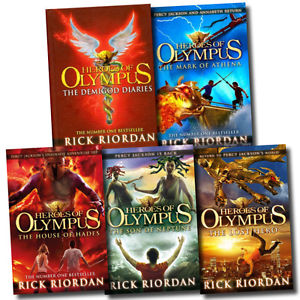
The Heroes of Olympus.
This series by far is one of the best spin off series ever.
Rick Riordan has brought so much more to the Percy Jackson world than I thought possible. He has added more complex story lines and has introduced Monsters and Gods that I didn’t know exist.
The overall plot for all 5 books is amazing. The idea of Mother Earth re-awakening and trying to destroy the Gods is brilliant. I love the way Rick introduced us to the prophecy right at the ending of the Percy Jackson series. It got me thinking about the new series. Would it be as good as this series?
The idea of bringing the Romans into this series was Rick’s best idea. He showed that there was conflict between the Greeks and Romans, and that even after thousands of years, things were not properly sorted. I really enjoy the way Rick presents us with Greek and Roman mythology. It wasn’t in huge blocks of text, but within characters’ thoughts and interactions.
I love how Rick brought in new characters, and switched to writing in 3rd person. It gives us different perspectives of the same world. How different characters reacted to finding out that they were demigods. I also like the way he changed the Point of View every couple of chapters. It gave us a better insight of the new characters and the old ones.
The thing that made this series amazing was the characters. There isn’t a useless character or a flat character (although some would argue Piper and Jason are). Each character is different has their own personality. Throughout each book, each character shows character development. I could read The Lost Hero and the Blood of Olympus and I would instantly be able to see how all the characters have changed and I love that. The characters in these books are just so memorable.
I adored the way Rick Riordan used jokes from the Percy Jackson and the Olympian series (The ‘dam’ joke from The Titans Curse). He mentioned old Monsters and characters that had not made an appearance in the Heroes of Olympus series but were present during the Percy Jackson and the Olympian series.
The way Rick wrote about all the different character relationships was amazing! He made it seem so realistic. He showed us that even in books, not everyone is going to get along. There is going to be conflict and jealousy. Not everyone is going to agree, but that’s life. Rick made the characters interact in such a way that you could relate to them, even if they were talking about how to defeat an ancient Greek Monster with Greek fire. You understood how the characters felt and you could empathise with them.
Rick has not only captured the attention of teens, but kids and adults too.
Even though, to me personally, The Blood of Olympus (the last book) was a bit of a let down, this series is by far one of my favourites. Rick has created a phenomenal world, and it will always have a place in my heart. I would recommend this series to anyone. You don’t even need to read the Percy Jackson and the Olympian series to understand what’s going on in The Heroes of Olympus (although I would recommend reading it first).
This series has made me laugh until my stomach hurts and cry until my throat is dry. It’s incredible. I seriously recommend picking up the first book – you won’t regret it!
Review The Book Thief, written by Markus Zusak by Sian Thomas
Review Dinefwr Literature Festival by Young Critic Hannah Goslin

21/06/2014 – 22/03/2014
In this glorious sunshine, I went up to Llandeilo to the Dinefwr Literature Festival. Well renowned for this yearly display of culture and my lack of festival experience, I was very eager to attend.
The festival is known for its promotion of literature from novels, to poetry, musical displays, workshops, comedy and much much more.
Food stalls were provided from local vendors that made delicious smells across the area with the use of local produce. Little shops including bookshops, tokens from the weekend and a Dylan Thomas styled book van also was a nice addition and admittedly, much of my money went on these, coming away with much reading to get started on! Between this, it was great to meet the sales persons; at times were writers themselves giving inspiration, for example a lady who felt that a poetry book wasn’t for her so made pockets of her collections and hand made them with a sewing machine and a printing kit. Myself as one who isn’t necessarily conventional, felt that this initiative was very appealing.
The variety of mediums gave a great choice throughout the weekend. The ability to also drop into these and drop out when needed gave great flexibility to the weekend. However, the programme itself didn’t give a great indication at times to how long these sessions would last and with so much going on, there were times when I missed events that I wanted to see as I was so interested in the one before that crossed over.
Workshops were also few and far between. Many seemed to only appeal to the same persons to which I lacked interest in. I didn’t manage to attend any of which I am sure they were interesting none the less, but there seemed a similarity to who they wished to appeal to and that wasn’t enough to evoke my personal interest. If more diversity in these workshops and a great deal more workshops overall were offered then I would have attended these.
Lectures and talks also seemed to follow a similar pattern. While, very interesting none the less, such as a combined talk with two novelists on their new books that looked at characters with mental health issues was very interesting, and gave a great insight to anyone at times of stress of need to talk to someone, showing that writing is an excellent medium to express this, the pattern of talking about the books, and for us the audience to watch and listen, waiting for question and answers which were limited in time, felt very routine and almost like a conference, not a festival.
Interjections of music and comedy, however, did give a little break from this. Hilarious feminist comedian Bridget Christie gave a session of work in progress, giving an insight to how comedians write material, giving a good way of audience interaction and us feeling more a part of the event. Adrian Edmondson and the Bad Shepherds ended the Saturday on a high with fantastic covers of well known songs, but with a folksy twist definitely evoking the festival goers inside everyone.
Dylan Thomas’s boat house also made an appearance, with the encouragement for poetry writing from the festival goers. Myself and my friend had a go at this, and my piece on the ‘Voyeuristic Cow’ inspired my younger self inside who used to love and write poetry to now continue this again.
The festival provided a range for all ages, S4C also made appearances for the children and comedians gave risky performances for the adults. As a festival, it was fantastic and completely revitalised my creativity in literature aspects but I wonder, with all the eagerness of participants, more could be gotten out of the weekend if extended so not to go away feeling regret at missing other possible inspiring and interesting activities.
Lord Of The Flies Review By Connor Abbott
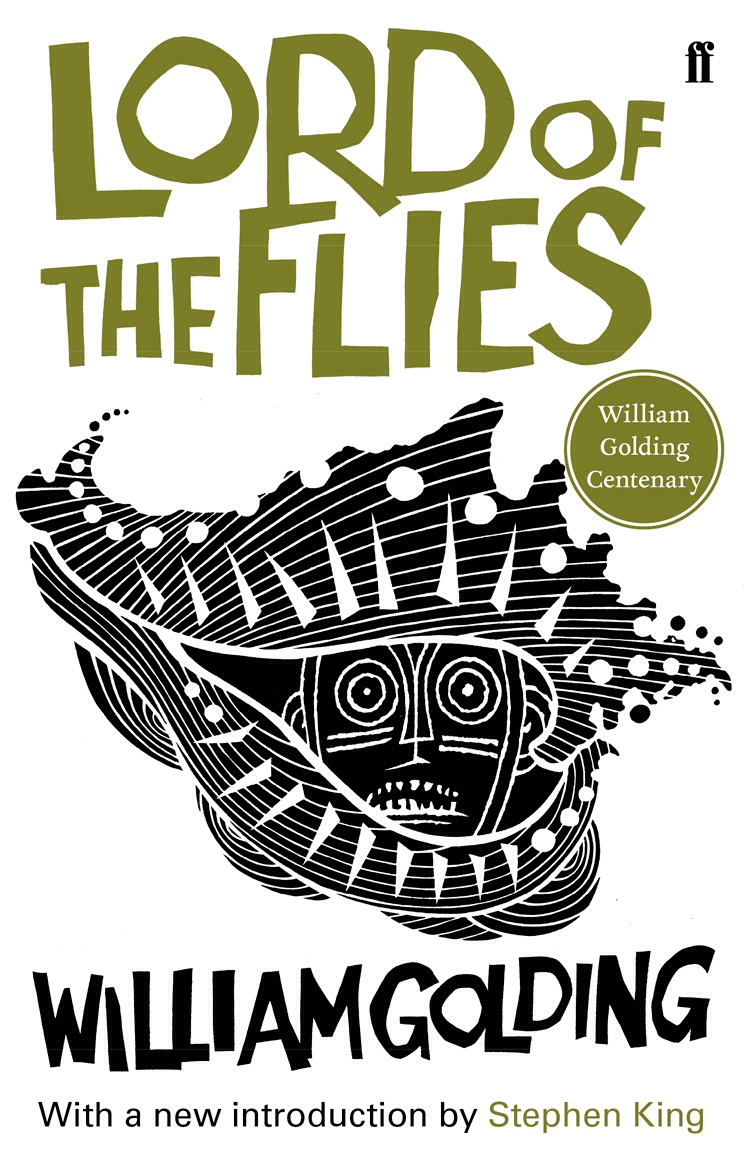
If you haven’t read this review it contains spoilers
Lord of the Flies was built up to me as a must read. An essential to own, a classic of it’s time. Many people have put this book on the status of a classic including peers such as Kingsley Amis who calls the book ‘terrifying and haunting’. The book was written by Sir William Golding and was published in 1954 by Faber and Faber Limited. It has twice been made into a movie, once in 1963 and a reboot in 1990, there are multiple stage adaptations including the ‘Cliff Notes’ version.
Upon reading however I found that the experience of reading it was a bit of a let down. At first we are introduced to a group of boys who are stranded on an island due to a plane crash, I find it strange how all the adults are dead, but the boys are not only unscathed but are seemingly unaffected by the events preceding those in the book.
The characters we are introduced to provided a slight high point for a book that is otherwise lacking “Ralph” is a stereotyped popular 12 year old male with little to no inperfections, the other major character here is “Piggy” a shorter tubbier individual who suffers from athsma and wears glasses, a contrast in the characters which is very necessary in a novel like this. To present the characters as individual’s which provides some justification for their contrasting opinions and personalities which ultimately leads to dispute within the book.
The concept of the book is simple and promising but does not deliver. The concept of the novel is to show how without order everything would descend into chaos. This however does not feel a gradual process and seems to be rushed , one moment they wouldn’t kill a pig the next they are massacring groups of pigs, one moment a group wants to be rescued the next they want to remain on the island forever. The novel is supposed to take place over a number of weeks but instead it feels like it is taking place over a few days. This was due to the sudden changes in morale and objectives within the boys leading to a feeling that these boys have just descended into madness overnight.
The Introduction of the Lord of the Flies, is a moment that could be highlighted as one of the best, yet pointless parts of the novel, It shows a descent into madness within the island. But there is a grey area with the death of Simon, was he murdered or did he just die, either way the death of Simon feels meaningless and seems like an excuse to kill someone in the book and not explain why, or why the others seem so oblivious to his death.
On the subject of death, the two deaths in this novel Simon and Piggy, could be a chance to showcase the madness the boys have descended into, however Ralph seems to react calmly despite being portrayed as the only sane one remaining and in a way this cheapens the use of death within this Novel, it gives an attitude of this happens everyday to the deaths, which had potential to show real turning points within the boys, especially the leader of the savage gang Jack Merridew.
There is also the theme of madness which reoccurs throughout the book, it takes on the form of the beast. I am afraid that this was also a prospect for the book that started well, the beast started as a nightmare that the younger boys believed was real but the older boys did not, over time the older boys become convinced by the idea of the beast, and go searching for it, that is where the good part ends as they actually find the beast (albeit a figment of their madness) which in a way destroys the idea of the beast being a threat as when they find it, that is the last we hear about the beast as they choose to leave it alone.
Finally there was the ending, after a long and quite frankly superhuman effort to evade the savage tribe from Ralph, who somehow managed to evade what I counted as anywhere from 8-10 members of the savage gang, a ship turns up to save the boys and an officer saves the boys who realise what has happened and go home as if Ralph wasn’t being hunted a matter of moments before. A clichéd lacklustre 4/10 finish which once again could have been phenomenal.
Overall, the book is one of the best in terms of it’s potential but the delivery is lacklustre, and therefore not deserving of its status of a classic of it’s time 5/10 at the most is what I would give this book.
Review,To Kill a Mockingbird by Gethin Llewellyn
Review, To Kill a Mockingbird by Gethin Llewellyn
“You can shoot all the blue jays you want but it’s a sin to kill a mockingbird”. A metaphor that you won’t understand unless you read To Kill a Mockingbird. The author of this novel is Harper Lee who was born on the 28th of April 1926. This is the only novel she ever wrote among a few fictional tales. No one ever truly understood why Harper Lee never wrote another novel. In this tale of 1930s America in the county of Alabama a father and his two children.Aticuss being the father Jem being the eldest child and Scout (Jems little sister).This tale may sound like a relaxing one but it will have you on the edge of your seat following the antics of the children on their quest to make “Boo Radley”come out. Experience what it was like growing up in these dark times through the eyes of a child. She thought it was a good idea to show what it was like growing up in a period of racism and segregation.
When Atticus is forced to defend a black man in court everything slowly starts to fall apart for him and his children.
The book has definitely faced the test of time it was released in 1960 and is still being sold all around the world in that time over 30,000,000 copies have been sold. In 1960 To Kill a Mockingbird was on the bestseller list for 88 weeks and then Harper Lee won the Pulitzer Prize. As the book looks at an extremely sensitive subject the fun of life still shows because it is being seen through the eyes of a child. In my opinion the book is extremely enjoyable because there are two sides to it.Because in the first part it shows the antics of the children and the games they play. I think these scenes are really uplifting considering the events that are going on around them. Though as every book does it has a dark side. At certain points I felt really frustrated about the level of racism shown in the book which is proven through some of the characters.
When you pick up this book you will not be able to put it down and when you’ve finished it you will be wanting more. As all points have been covered I give this magnificent book an 8/10.Amazing plot, characters you will fall in love with but in my opinion I think they should have tried to reach for a wider audience. I understand it may be difficult to try and reach for a younger age using such a sensitive subject (racism).I understand it may be difficult for them to understand but let’s face it their starting them younger and younger today, So in my opinion I think they should teach children about this book earlier than they do because they are missing out. (So is anyone else who hasn’t read this book).That’s my opinion and you know what they say whether it’s a book film or play nothings perfect. And no matter how good it is there’s always room for improvement.

